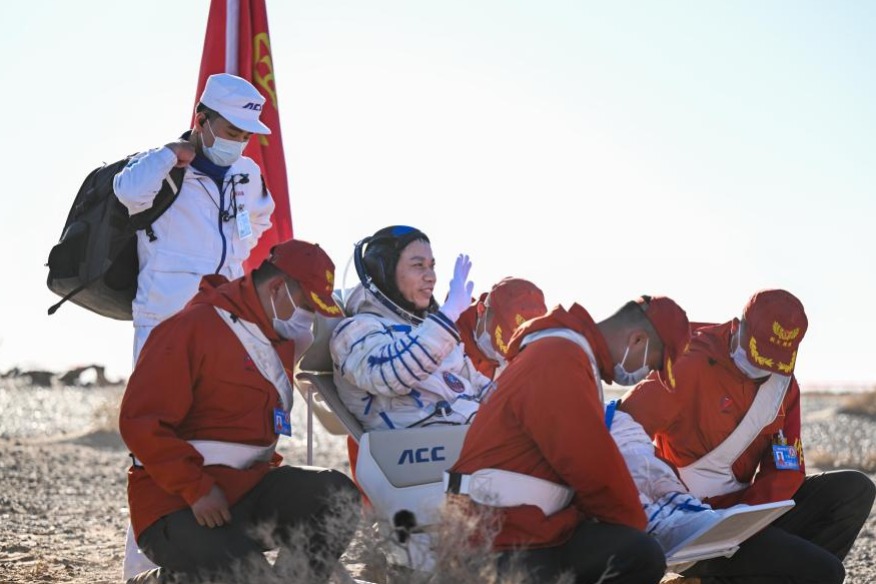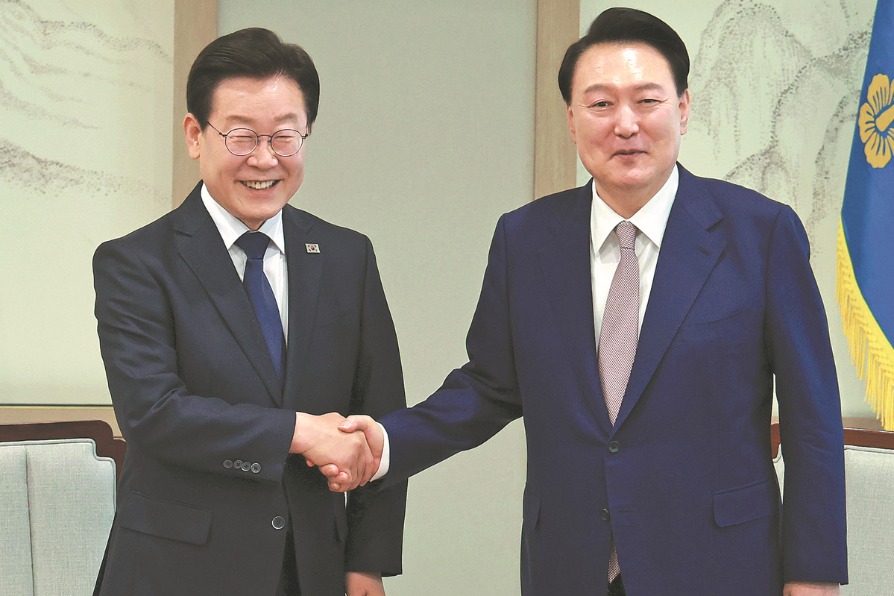IAEA report facing backlash in S. Korea
By YANG HAN in Hong Kong | China Daily Global | Updated: 2023-07-06 09:33

UN nuclear chief heads to Seoul amid residents' opposition to Japan's plan
Concerns remain in South Korea over Japan's plan to release nuclear-contaminated wastewater into the sea, after the International Atomic Energy Agency announced the plan meets its safety standards.
As protests against the discharge plan continued across the country, the South Korean government said it "respects" the IAEA's findings ahead of the agency's Director-General Rafael Mariano Grossi visit to Seoul.
The government's stance was in stark contrast to the views of the opposition and other groups.
"The IAEA report should not become a 'get out of jail card' (for Japan) to release contaminated water into the sea," said South Korea's main opposition Democratic Party, or DP, in a statement on Wednesday. "The Japanese government should immediately withdraw its discharge plan."
South Korea will issue a response as soon as possible on the IAEA report, a senior official said on Wednesday.
Japan is set to release more than 1.3 million metric tons of nuclear-contaminated wastewater into the Pacific Ocean this summer from the crippled Fukushima Daiichi Nuclear Power Plant, which was ravaged by a massive earthquake-triggered tsunami in 2011. Once it begins, the process will take decades to complete.
On Wednesday, Grossi met with Fukushima residents and representatives, seeking to reassure them that the decadeslong discharge plan is safe, and later toured the wrecked plant, including some of the key facilities that will release treated radioactive water into the sea.
In a report presented to Japanese Prime Minister Fumio Kishida in Tokyo on Tuesday, the IAEA said the discharge of the treated water would have a "negligible radiological impact on people and the environment".
Obvious limitations
However, there are obvious limitations regarding safety verification of the discharge plan, the DP said.
"The IAEA's final report neither verified the performance of the Advanced Liquid Processing System nor checked how many radionuclides are contained in the contaminated water," said the DP, noting it failed to meet the justification and optimization requirements of the agency's general safety guidelines.
The report shows the increasing need for internationally recognized validation and parliamentary-level hearings, it said.
On Tuesday, members of South Korea's liberal Justice Party continued its rally against Japan's discharge plan in front of the Japanese consulate in the southern port city of Busan.
As of Wednesday, Justice Party leader Lee Jeong-mi had been staging a hunger strike in front of the Japanese embassy in Seoul for 10 days.
In a Facebook post, Lee said the Japanese government has full responsibility to answer the questions raised by the international community and scientists.
Grossi was expected to visit Seoul from Friday through Sunday to discuss the safety review with officials.
His visit would include a meeting with the head of the Nuclear Safety and Security Commission, the country's nuclear safety watchdog. He will also meet South Korean Foreign Minister Park Jin.
"The IAEA director-general should clarify his position on the principle of 'justification' when he visits South Korea," said Lee, noting the "irresponsible" report failed to mention South Korea, China, and Pacific Island countries, for which socioeconomic losses because of the discharge plan are clear.
Lee said her party will push for a parliamentary hearing to examine the dangers and illegality of the discharge plan, including the IAEA report.
On Wednesday, civil groups gathered at Seoul's Gwanghwamun Square to oppose the report and demand that the Japanese government drop the plan.
The Korean Federation for Environmental Movements, one of the country's largest environmental groups, said on Wednesday the report is tantamount to giving Japan's discharge plan "a pass", and called on South Koreans to join a protest on Saturday to oppose the plan.
According to the federation, a total of 152 councils, or more than half of the 244 local councils in South Korea, are concerned about Japan's discharge plan. A survey conducted by South Korea's Hankook Ilbo and Japan's Yomiuri Shimbun newspapers also showed 84 percent of South Korean respondents oppose the planned release.
























